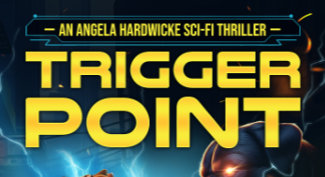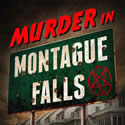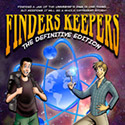A few days ago I was talking to someone about my editing process on Finders Keepers, and while it?s normal for me to work the way I do, he thought it sounded a bit unusual. And that got me realizing that what I do process-wise seems normal for me because I spend so much time doing it, although I never think about what the writing?or editing process?might look like from someone else?s eyes.
So … I thought I?d share my editing process with you, giving you a peak through the window. I want A few days ago I was talking to someone about my editing process on Finders Keepers, and while it?s normal for me to work the way I do, he thought it sounded a bit unusual. And that got me realizing that what I do process-wise seems normal for me because I spend so much time doing it, although I never think about what the writing?or editing process?might look like from someone else?s eyes.
So … I thought I?d share my editing process with you, giving you a peak through the window. I want to add up front, though, that this is just my process. Every writer edits his or her own way, and there?s no one best way. This is what works for me:
Now that the manuscript is finished?it?s been finished for quite a while now?I decided to take another look, having put it aside for six months while I built the Web site and sent letters to agents. It?s a decent sized manuscript?about 120,000 words?and it has a lot of chapters. A lot. But that?s only because they?re very short.
What I?ve been doing is breaking the manuscript into 50-pages chunks, and then giving it two full reads. So I print out 50 pages, as I don?t like to edit on screen in large chunks; I?m a paper guy. It?s easier for me to read and I can take pages with me. And then off I go.
[b]First Read[/b]:
On this first read, I?m looking both for little things?grammar, awkward phrases, etc.?but also for overall flow. Does the 50-page sequence work well? Is the pacing right? Does it move along too fast? Too slow? Is there repetition among the chapters? Did I leave out something important? Does some piece of plot or dialog need clarification?
In doing so, my editing process is to make edits, in pen, on the pages. Once I?m done, I sit at my computer, and input those changes on screen, circling each change on the page as I make it. For example, if there was a sequence on the page that said: The wind swept through the valley … but I didn?t like it, on page I would strike a line through those words in pen. When I delete those words on screen, I then circle the edited text on page, telling me that I made the change.
Once I?ve inputted all of my changes on screen and save them all, I take a break?at least an hour, or days, if I can?t do more in that session. Then I go back to my edited pages and make sure that I inputted those changes correctly.
This is an [i]extremely [/i]important step. It is very easy to make a mistake, especially if you?re inputting several changes. So I check to make sure that I actually made every change I intended to make.
Going back to the wind swept through the valley example, on my desk will be the page with those words, which at this point should have a line through them from my initial edit, and they should also be circled, noting that I inputted the change. I then read that section on screen to confirm. If I inputted the change correctly, I strike a line, in pen, through that circled phrase?usually in different color ink. This tells me I inputted the change correctly and can move on. If I didn?t make the change?if I missed it for some reason?I do it then.
If this seems like a tedious process, well … it is. But it allows me to catch a lot of little editing mistakes that are inevitable.
[b]Second Read:[/b]
The second read is where I like to mix things up a bit. It?s not a common process?at least not to my knowledge?but I find that it?s a very big help. Rather than re-reading that same 50-page section for a second time?in sequence?I read the chapters out of sequence, in some random order.
So instead of reading chapters 1-4 in that order … 1, 2, 3, 4 … I?ll read them 3, 2, 4 and then 1.
Why? Fair question.
When I read anything in sequence, multiple times?whether it?s a page, a single chapter or a chunk of chapters?I start to anticipate the words and their flow. I start skimming. Since, in my mind, I?m really thinking?I know what comes next?I?m not as focused as I could be. Instead, if I?m reading chapters out of order, my brain kinda says: Dude, whoa, that?s not right. Wait. Let me take a closer look at this. Which is my point exactly.
Reading out of sequence forces me to look at each individual chapter, the pages?and even paragraphs?more closely than I normally would have. And since at this point I?m more focused on nuance than flow, that focused attention again helps me catch little things?words, phrases?that maybe I overlooked the first time. It?s a new way to look at something I?ve already done.
And then I edit on page as I?ve described above.
Once I?ve wrapped up a 50-page section, I start with the next 50 pages, and do the process all over again. And on and on until I?ve then re-edited the entire manuscript, which I?m doing now.
So this is just a little peak into the world of this writer, trying to bring the ideas swirling in my head to you.





